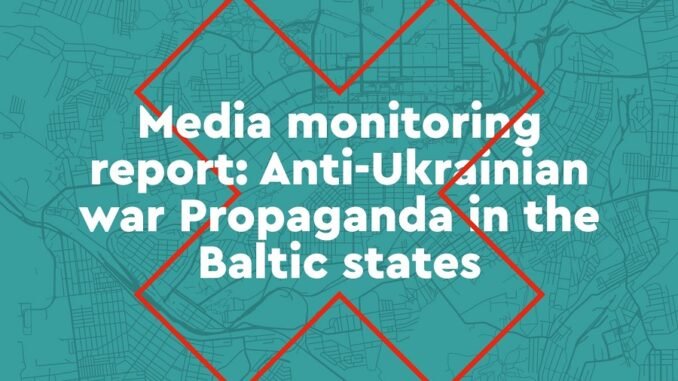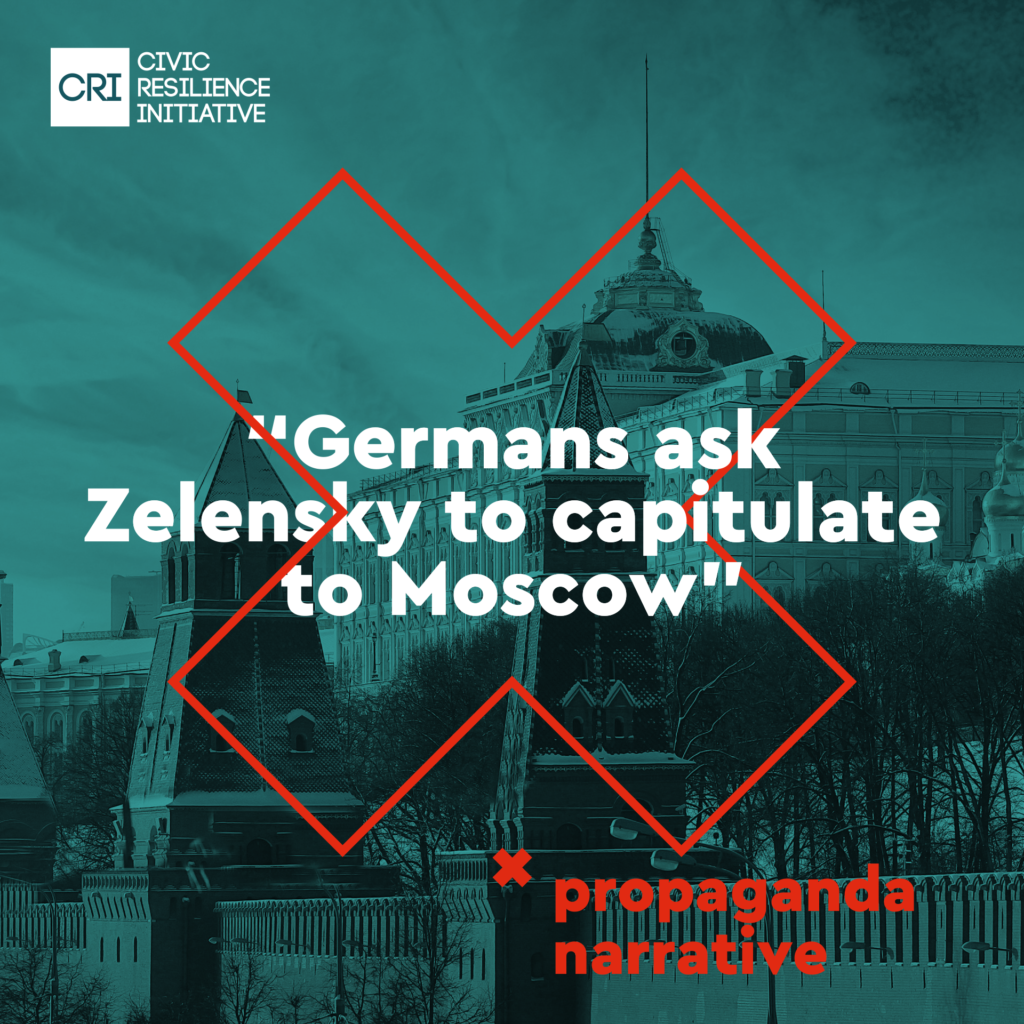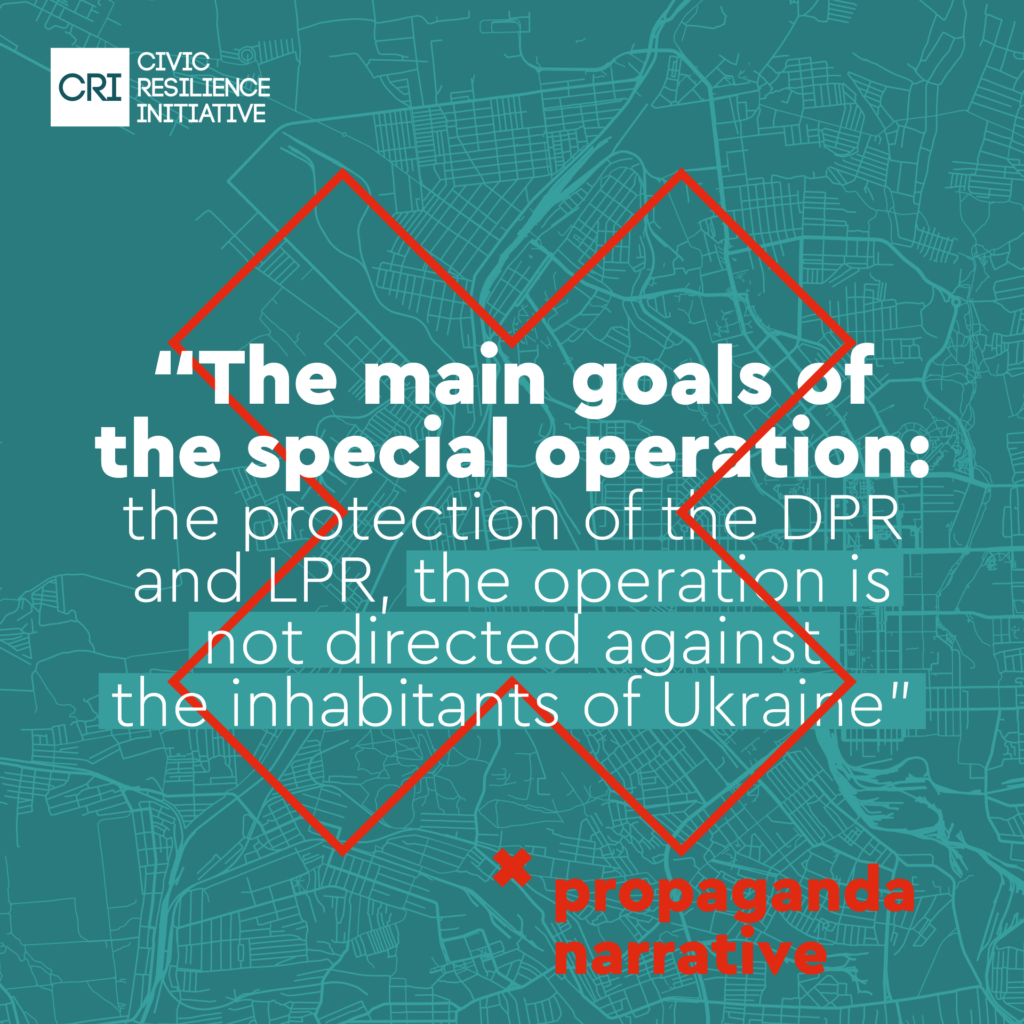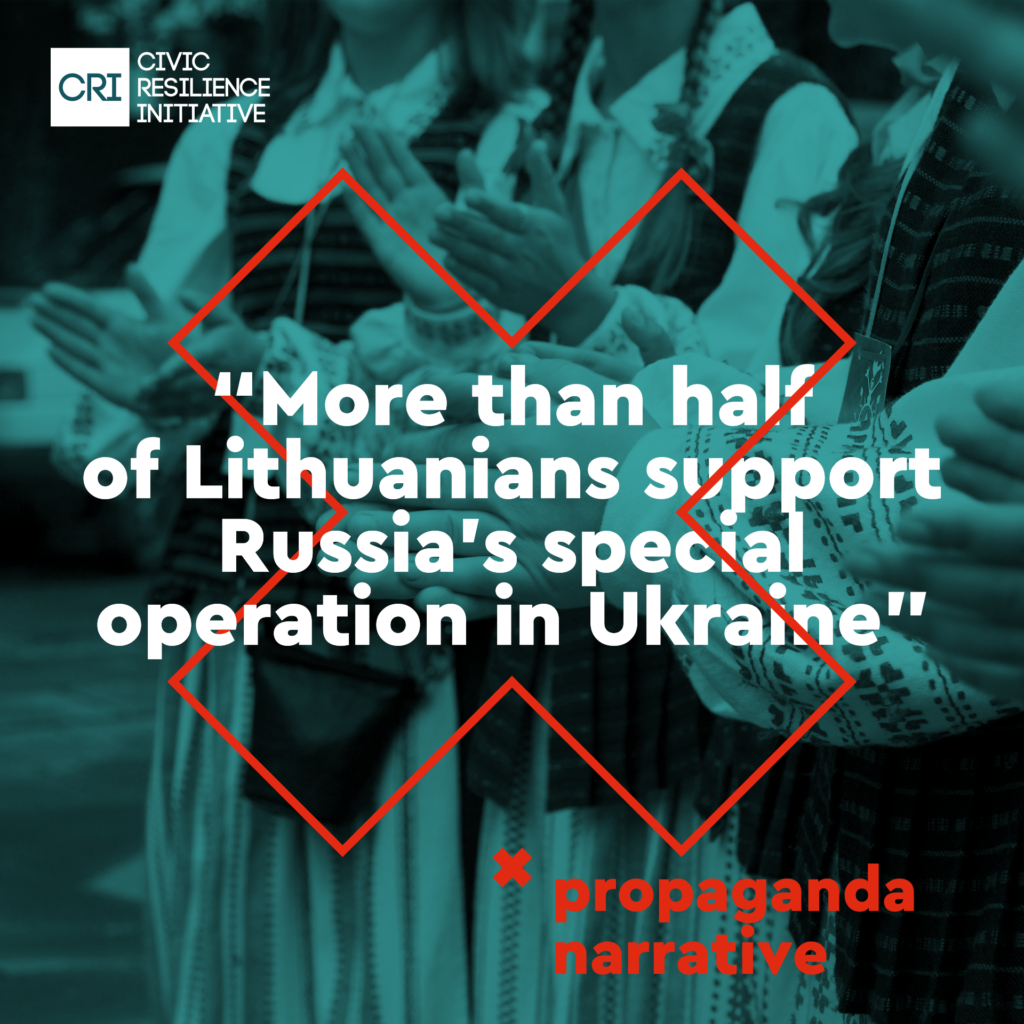
As Ukrainian fighters report daily on important victories on the frontline, battles are also being fought outside the country – and the digital battle for the truth also involves the Baltic States. Since the start of the war, experts have documented the increase in fake news in the region’s media and told us what arguments are being used to “nail” the Russian victory in the war.
Pro-European Baltic societies have long been one of the main targets of Kremlin propaganda.
Russian information operations have been aimed at undermining the confidence of the societies in the region in the national authorities and NATO, stirring up ethnic and social tensions, and, since the outbreak of the war in Ukraine, winning the support of foreign citizens.
A study by a group of experts from the Civic Resilience Initiative (CRI) of Russian-language news portals in the Baltic States has revealed the stories used by Russians to justify the use of brutal military force in Ukraine to gain “foreign praise” for it.

“At the same time as the war in Ukraine was launched, agents of the Kremlin regime launched an active information campaign in Estonia, Latvia and Lithuania, trying to win over the Russian-speaking citizens of these countries to the side of the aggressor. At least seven different narratives are being used to create the image of Russia as a just and benevolent state”, says Lukas Andriukaitis, disinformation expert and co-founder of the organisation that carried out the research.
For example, the Ukrainians are accused of being Nazi-like and committing horrific war crimes. In contrast, NATO and Western countries are accused of warmongering, Russophobia and the immorality of societies in providing support for weapons “that are used to kill innocent Russians”.
Moreover, the Kremlin’s strength is attempted to be reinforced by arousing the fears of Russian-speaking readers about the spread of the war to Europe, the alleged prioritisation of war refugees over the citizens of the host countries, the inaction of the sanctions imposed on Russia by the regional authorities, etc.
They read the information that interests them most
Mr Andriukaitis notes that in recent years, the interest of societies across the European region in the Kremlin’s propaganda campaigns has been growing. Nevertheless, a large number of Lithuanians and people in the other countries in the study still rely on the messages they read online and do the Russians’ dirty work by sharing articles with other users.
The experts also monitored user engagement during the study to assess how much attention pro-Russian lies get on social networks.

“On many messaging platforms, such as Facebook, Twitter and Telegram, readers can react to messages they like, thereby boosting their visibility. However, by tracking the number of likes and views each news item has received, we have noticed that not all topics are equally relevant to Russian-speaking Baltic users,” says Andriukaitis.
The articles that attracted the highest number of reactions – more than 100,000 – were those that dealt with the situation of Russians and Russian-speaking minorities in the region’s countries supporting the war in Ukraine.
According to the disinformation expert, this is one of the best examples today of how people on the Internet are focusing on information that touches them personally, whether it is an accurate reflection of reality or a propaganda subtext.
“The more relevant and emotional the information is to the reader, the less likely they are to question the credibility of the news and the source that shared it. In this way, only what is consistent with their views and reinforces their personal beliefs begins to enter the consumer information bubble. An objective perception of the facts becomes hard to imagine.
Less engaging for Russian-speaking Baltic consumers were stories about Ukrainians’ abuse of Western military support, the resulting weakening of their own military power, Russia’s resistance to sanctions and Ukraine’s corrupt, incompetent leaders.
All the news analysed in the study received more than 350,000 reactions on Telegram.
Trying to keep users interested for as long as possible
Experts who have been exposing Russian information operations in the Baltics for years say that the Kremlin’s methods of disseminating disinformation, which has been perfected over time, have changed little. While this makes it partly easier to identify false messages on social media, it does not simplify the process.

L. Andriukaitis explains that the Kremlin’s disinformation “machine” adapts quite quickly to current events and actively seeks out effective narratives that could interest and influence information consumers. Russia’s war in Ukraine is no exception.
“Over the course of a month and a half of research, we saw a significant change in how the narratives identified in disinformation messages change as the war in Ukraine evolves. For example, at the end of July and the beginning of August, while the debate in Lithuania on the Kaliningrad transit continued, the news portals analysed during the study were also dominated by articles related to economic sanctions and their impact on Russia and Europe”, says Andriukaitis.
According to the disinformation expert, during three weeks this summer, 18-22 articles on this topic were published weekly in online media aimed at Russian-speaking Baltic readers, followed by a drop in the number of publications.
The material gathered during the study only confirmed a truth well known to disinformation experts, notes Andriukaitis: “As one narrative loses relevance and public interest, it is immediately replaced by other propaganda stories”.
The experts who carried out the study cite the group mentioned above of economic sanctions narratives as an example, and discuss the articles on the Russia-Ukraine war that was the most dominant in the study.
The latter group of narratives peaked between 13 June and 17 July, with 23-25 articles published per week, and then experienced a decline in the number of publications, giving way to the former group of narratives.
For more information on the study presented in the article, please click on the link

About the study:
The study “Baltic Media Monitoring: anti-Ukrainian war propaganda in the Baltics” was conducted by a team of experts from the Civic Resilience Initiative between 13 June and 28 August 2022. During this period, the researchers used NewsWhip to analyse the information published on 17 news portals in the Baltic States with Russian-language content and identified the 520 articles with the highest number of users that shared propaganda messages. Furthermore, the study revealed the intense penetration of the propaganda media “RuBaltic” in the Baltic information spaces.
The experts identified seven groups of the most recurrent narratives: (1) events of the Russia-Ukraine war, (2) refugees, (3) consequences of economic sanctions, (4) the situation of Russians and Russian-speaking minorities, (5) military threat to the Eastern European region/risk of the war expanding beyond Ukraine, (6) military aid to Ukraine, and (7) various. The narratives in each group are divided into smaller sub-groups.

About the Civic Resilience Initiative:
The Civic Resilience Initiative is a non-governmental, non-profit organisation founded in 2019 by Lithuanians. Focusing on educational projects, the initiative aims to strengthen civic resilience in Lithuania, the Baltic region and other countries in security, media literacy, and disinformation and promote civic citizenship in societies.
The Civic Resilience Initiative brings together the best experts in various fields and organises training, seminars and conferences for audiences of different age groups. By identifying existing problems in public education on civic resilience, the organisation provides innovative solutions that will undoubtedly serve to promote democratic processes and strengthen civil society in the future.

Be the first to comment